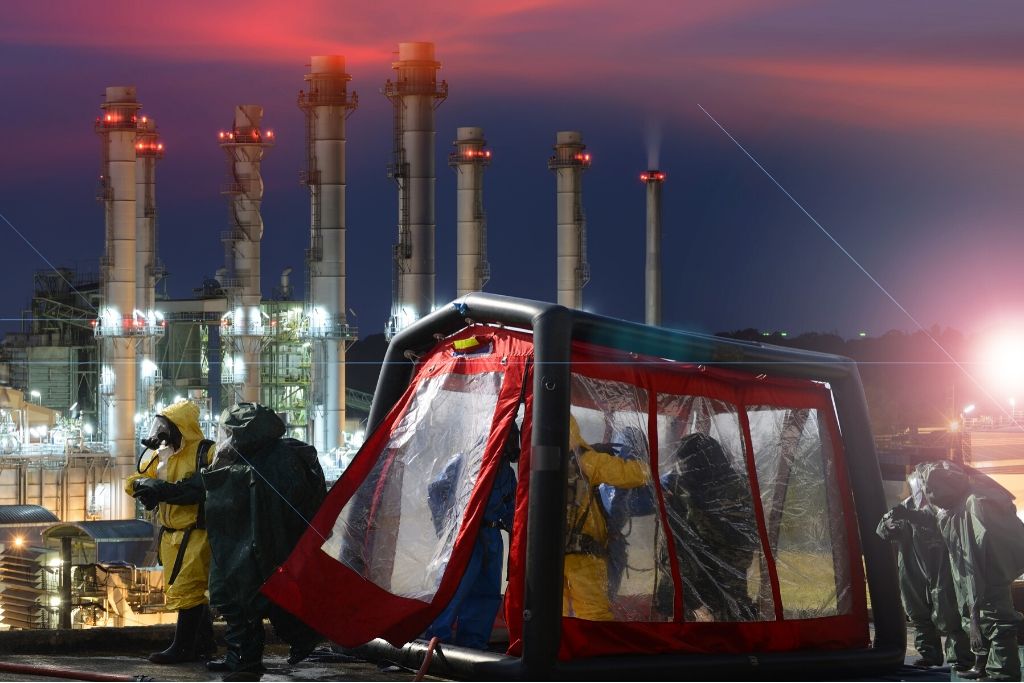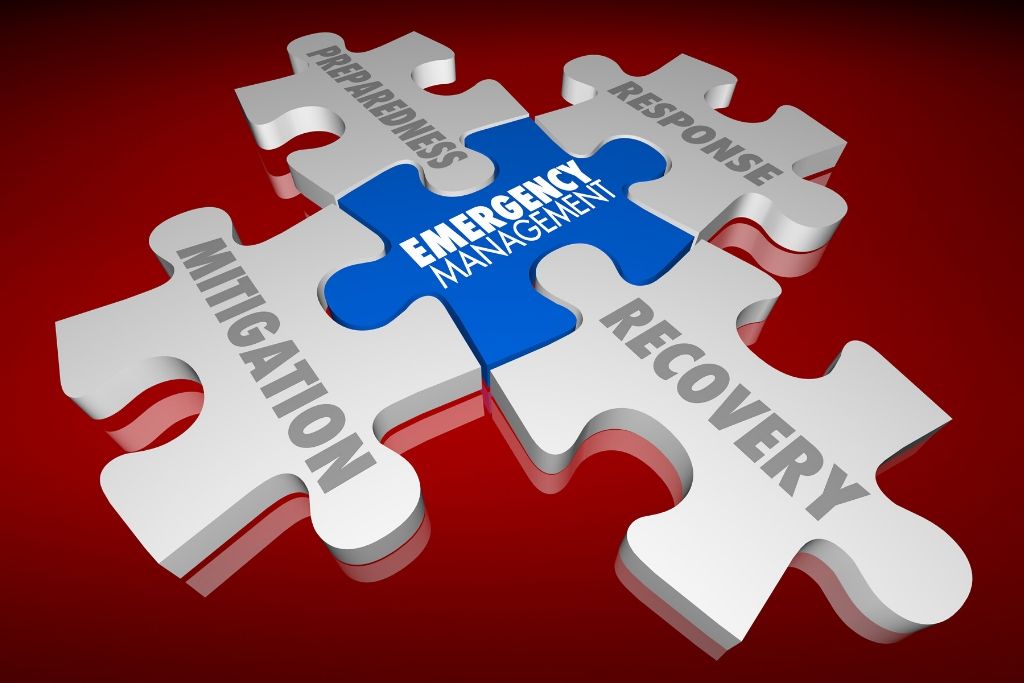As COVID-19 rapidly evolved, the emergency management industry was called upon to help communities, cities, states, and nations. It was the crisis response managers who were tasked with helping communities navigate an influx of health concerns. Careers in emergency and disaster management are quickly growing in demand.
Just like any emergency, there were complex management issues that revolved around this situation. With COVID-19, there were some unique disaster response issues that needed to be controlled.
Many people are out of work, there is an increase in the need for food banks, there are government assistance changes, and medical supply chain issues are at the forefront.
It does not matter what the disaster situation is; there is always a need for emergency and disaster management personnel. Individuals that are highly trained to navigate a disaster response are used in cities, states, and across the national frontlines. Disaster management careers will always be needed.
Disaster Management Industry
Disaster management personnel are responsible for responding to a wide variety of disasters. They help to coordinate with public officials, elected officials, nonprofit agencies, and federal agencies.
According to the Bureau of Labor and Statistics, 51% of Emergency Management Directors work with local governments. The remaining jobs are within a variety of other private and public organizations.
Emergency management jobs consist of four distinct aspects:
- Prevention
- Preparedness
- Response
- Recovery
Work schedules during a disaster are unpredictable. Most disaster management individuals will be required to be on-call for the duration of an emergency response situation.
Types of Disasters that Require Emergency Management

Emergency management and disaster response personnel plan to deal with a wide variety of situations. Even with a great deal of planning, sometimes new situations are presented and the emergency management team will have to make quick changes to their plans.
Some common types of disasters that teams will prepare for include:
- Floods
- Hurricanes
- Earthquakes
- Chemical Spills
- Nuclear Power Plant Accidents
- Terrorist Attacks
- Wartime Disasters
- Technology Disasters – Like ransomware on government systems
- Medical Disasters- Epidemics and Pandemics like COVID-19
- Hostage Situations
Although as a disaster manager you will try and prepare for all the possibilities, it may not be possible. The goal of your education and training is to prepare you to adapt and change to any disaster situation.
Recommended Education for Disaster Management Careers
To become an Emergency Management Director, you will need a bachelor’s degree. Some possible paths include public administration, emergency management, and public health. It may also be helpful to include educational training in computer science, accounting, and information technology.
At Everglades University, our Crisis and Disaster Management program allows students to specialize in the area of study that suits them. Courses within the major program and other programs are combined to form your degree.
Individuals find careers in public and private industries. Some of the courses included in the Crisis and Disaster Management degree include:
- Disaster Health Management
- Emergency Management and Public Policy
- Terrorism and Homeland Security
- Emergency Preparedness and Response
- Disaster and Society
- Relationship Management
- Basic Emergency Planning
Whichever degree program you attend, it is essential that skills in communication, global awareness, and management are taught. At Everglades University, we combine those skills with critical thinking, theory, management response, relief, and recovery to ensure our students are fully prepared for whatever future disasters they will be attending.
Top 5 Careers in Emergency Management

Careers in emergency and disaster management are ever-evolving and changing. These top careers are consistently needed within local and state governments. New specialized positions may develop more rapidly within non-profit organizations and businesses since COVID-19.
(All projected growth statistics in this area were recorded as of 2018 and may be adjusted after the current COVID-19 emergency.)
Emergency Management Director
This position plans and prepares for disasters. They often have several years of experience in the disaster management industry or have worked through difficult educational programs with hands-on experience training.
Emergency Management Directors:
- Assess disaster plans
- Meet with all organizations involved in a disaster response
- Coordinate with governors and other elected officials
- Review plans with medical facilities and federal agencies
- Are organized and able to stay calm under pressure
- Work with organizations and communities to maintain facilities for use during emergency operations
- Direct the disaster response
- Job Outlook: Projected growth of 5% over the next 10 years.
Public Health Specialist
The need for public health preparedness has never been more present than during the COVID-19 crisis. Because the Public Health Emergency Preparedness (PHEP) is such a critical source of funding for governments they rely on a highly trained individual to be prepared to manage these situations.
Public Health Specialists:
- Prepare to respond to public health threats
- Participate in emergency planning for natural disasters, biological disasters, chemical, and nuclear events because they all have public health-related issues.
- Work with local and state governments
- Coordinate with federal agencies such as the Center for Disease Control and Prevention (CDC) and Federal Emergency Management Agency (FEMA)
- Have a large education component for the community
- Job Outlook: Projected growth of 11% over the next 10 years.
Public Information Officer
The job of a public relations specialist is to maintain a favorable public image during a disaster response. Public Information Officers work behind the scenes with elected officials to ensure the public is informed during a disaster.
Disaster management careers like the public information officer will vary greatly depending on whether you work with private organizations or public ones. The U.S. Bureau of Labor and Statistics estimates over 280,000 positions by the year 2028.
Public Information Officers:
- Are responsible for supporting incident command.
- Work within federal, state and local governments
- Typically require excellent writing skills
- Are a public figure providing information during an emergency
- Arrange interviews for elected staff
- Draft speeches
- Respond to media requests for disaster information
- Job Outlook: Projected growth of 6% over the next 10 years.
Business Emergency Operations Specialist
This position handles the emergency response for large corporations and will likely be one of the careers in emergency and disaster management that grows exponentially after the COVID-19 crisis. Just like cities and states, large companies need to mitigate their response to keep their employees and communities safe during a disaster.
Business Emergency Operations Specialists:
- Work with private companies
- Report to executive staff
- Plan an emergency response for all types of disasters
- Work with the media to share appropriate information when needed
- Have job duties assigned based on business industry and company needs
- Job Outlook: Projected growth of 3% over the next 10 years.
Emergency Management Specialist
The main difference with this position is that individuals typically work with organizations who are sent to disaster areas. These teams are often part of a non-profit organization or federal government and growing careers in emergency and disaster management. They specialize in disaster response efforts and help guide local emergency response teams during the initial disaster before moving onto another event.
Some unique aspects of this position include:
- Frequent travel
- Consistently working in disaster areas
- Willingness to live and work in the area of need
- Periods of downtime between disaster responses
- Ability to coordinate with local governments
- Ability to train teams and stay calm during a disaster
- High-stress level
- Job Outlook: Projected growth of 5% over the next 10 years.
In order to get started in a career within the emergency and disaster management field, you will need to have a bachelor’s degree. It has never been easier to enroll and get started within this exciting career field.
Take control of your life today! Enroll in the Disaster and Crisis Management program at Everglades University now and within a few short years, you will be making a difference.




